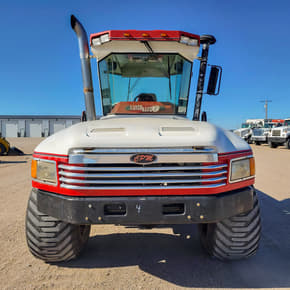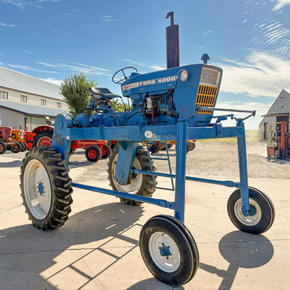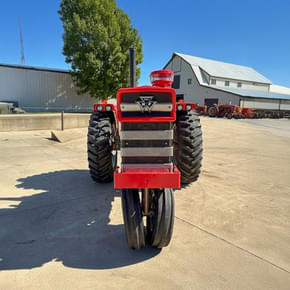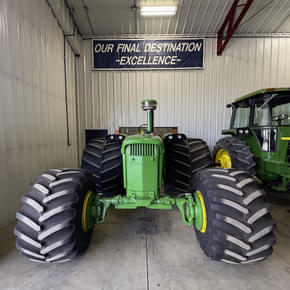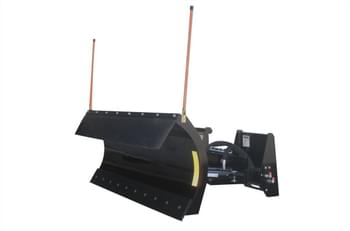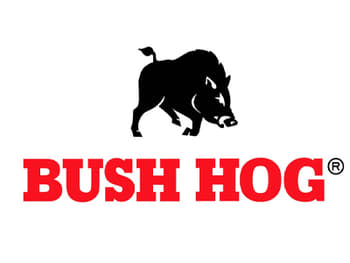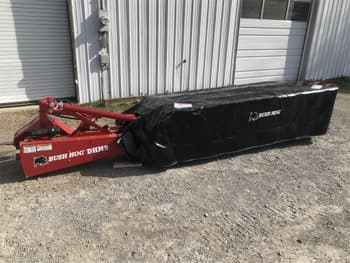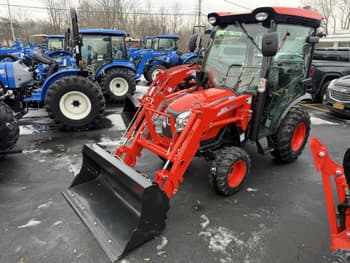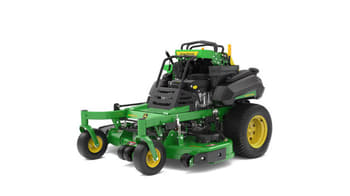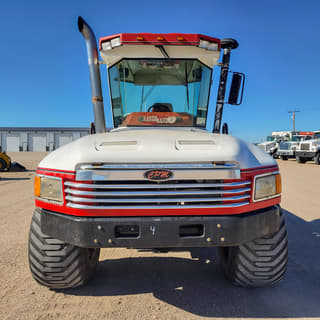Congratulations! You’ve found the perfect piece of equipment for your operation after meticulously researching available models, analyzing equipment hours, and weighing the pros/cons of buying new vs. used. You’ve made up your mind and are ready to buy. Now what?
When it comes to purchasing equipment, your research shouldn’t stop at the piece of equipment you want. Understanding your equipment financing options and who, or how, to finance that equipment is the next big decision that needs to be made. While there are only a few categories of farm equipment finance companies out there, the following summarizes the differences of working with each one and variables worth your consideration.
Farm Credits
According to the national Farm Credit website, farm credits’ main mission is to support rural communities and agriculture with reliable, consistent credit and financial services, today and tomorrow. For today’s farmers, there are 70 customer-owned financial institutions across the U.S. that can loan money for farm expenses including land, crop inputs, farm equipment, and more. Because farmers are their primary customer-base (as opposed to your local bank), farm credits are better equipped to understand the in’s and out’s of a farmer’s business model and financing needs.
Pros:
In a survey conducted by Tractor Zoom and DTN/Progressive Farmer, 89% of farmers indicated that a loan’s interest rate is the most important variable when it comes to financing a piece of farm equipment. Because farm credit financing includes oversight by the Farm Credit Association, an agency of the federal government, their loans often feature the lowest interest rates as compared to other companies. Additionally, the knowledge and dedication to serving agriculture often puts the service farmers receive above other financing companies.
Cons:
If you’re just starting out or have a smaller farm operation, farm credits may not be willing to finance your equipment due to limited assets, credit history, or borrowing behavior. While there are benefits to being backed by the federal government when it comes to interest rates, there are also downfalls in term flexibility or loan eligibility based on the many regulations they must follow.
Original Equipment Manufacturers (OEMs)
Original equipment manufacturers (OEMs) often offer equipment financing in-house. This not only makes the equipment purchasing process more convenient for you, it also helps the OEM remove additional barriers to purchase by controlling most of the buying process.
Pros:
Financing directly with your equipment dealer may present a better opportunity than going through a bank or farm credit, especially when coupled with special equipment financing programs or warranty promotions. Equipment dealer financing can be quick, easy, and convenient — why involve a third-party when it can all be completed in one spot?
Cons:
An often overlooked disadvantage when financing with an OEM is that your loan principal could increase during the sales process. Adding on one or two attachments or implements may not seem like a huge increase to the sale price, but over the course of the loan and the interest incurred, this may significantly increase the amount you pay over the loan’s lifetime.
Local Bank or Credit Union
Financing through your local bank or credit union can be advantageous because they’re right in your backyard. Additionally, because of the relationships built within your community, your local banker may know you and your operation personally including what you farm, your growing conditions, how last week’s storm impacted your operation, or even when your daughter will be home visiting from college.
If proximity to your operation or building long-term relationships is important to you, applying for a farm equipment loan at a bank or credit near you may be your best option. However, before you proceed, know there are a few distinct differences between a bank and a credit union that may influence your financing decisions.
Pros:
Utilizing a local lender for equipment financing can be beneficial when you need financing in a hurry or in situations where your financials may not look ideal “on paper.” A personal connection can expedite, or in some cases, bypass typical underwriting processes to get you what you need to keep your operation running smoothly.
Additionally, your local bank or credit union has the distinct advantage of being able to house your business and personal banking under one roof, which could be very convenient and introduce some much needed time savings to your day.
Credit Unions have an advantage over local banks because they’re non-profit, tax-exempt institutions, meaning they can pass on these savings to their members. This is typically accomplished in the form of lower equipment loan interest rates.
Where local banks excel is by being able to offer their customers a larger array of products and services. Additionally, because your local branch is likely backed by a larger parent bank, they typically invest more in technology. This means access to your funds, loan information, online payments, etc. may be more convenient and accessible while you’re on the go.
Cons:
While it is hard to put a value on a personal relationship with your local lender, sometimes there are limitations like lower lending limits, higher interest rates, and less user friendly online or mobile banking technologies and experiences.
Cash
There’s a reason people still say “cash is king.” While this option isn’t technically a company you can finance with, it warrants a mention since 45% of farmers indicated they’ve used cash (in addition to financing) to purchase their farm equipment. For farmers, however, it is still important to consider when or where that cash can be best spent to fully maximize its buying power.
Pros:
The obvious advantage of using cash to purchase farm equipment is avoiding any interest payments on top of your purchase. For example, a five-year note on a $200,000 tractor could incur almost $19,000 in interest over the course of the loan term at 3.5% interest.
Cons:
While there may not appear to be any obvious downfalls to using cash to pay for equipment, it’s important to consider the opportunity costs of where that cash could have been better utilized. If you’re able to lock in an attractive interest rate on your equipment, cash can be diverted to other purchases that come with a greater principal or interest rate. Additionally, having cash on hand for last-minute or emergency purchases can help you keep your operation running smoothly without any disruption to your business.
Ready to finance your equipment?
In addition to providing equipment listings from the top auctioneers and dealer locations nationwide, Tractor Zoom facilitates farm equipment financing with some of the industry’s leading farm equipment lenders – all online. Compare interest rates, terms, or lender offerings (like instant loan decisions), then select the best financing option that meets your unique needs and finalize your application directly with your lender of choice.
We’re changing the way the industry researches, values, and manages the purchase of equipment to help farmers make more informed buying decisions, as well as help overcome the biggest pain points in financing equipment.
Find your next piece of equipment with Tractor Zoom and access free financing quotes in seconds today!

